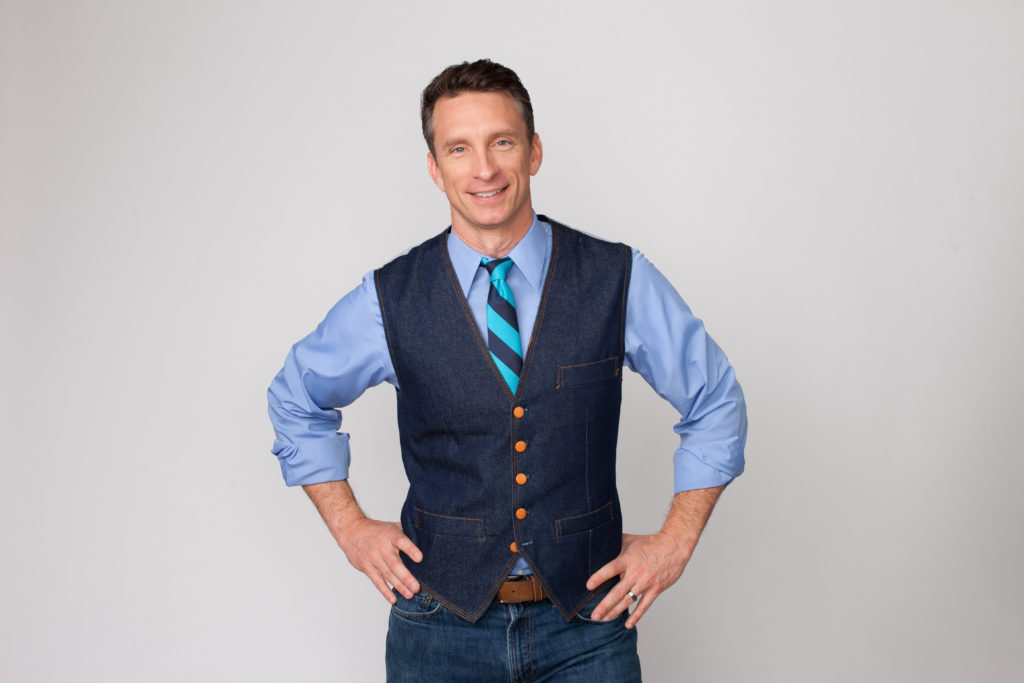
welcome
THE HEART UNIVERSITY BLOG
Who the heck are we?
explore
Heyyy friends
We're Lindsey & Evie, two full time, 7-figure destination photographers, educators, and influencers. Our hearts beat to see people stepping into their God-given callings, living their lives to the fullest, and fully embracing their passions.
We’re also hot mess weirdos who both love a good dance party, a glass of wine, muddy hikes and adventures, leggings + no makeup (ain’t nobody got time fo dat!!!) and music jams at the top of our lungs… whether it’s on key or not. YEP. The end.
We're Lindsey & EviE
Advice for overcoming mindset hurdles that stop you from succeeding in your business and life.
Entrepreneur mindset
Tips on everything from workflow to batch working to learning how to balance and manage your life well.
BUSINESS STRATEGIES
Check out our top marketing tips to crush those goals of yours.
MARKETING
Wanna know the real Evie and Lindsey behind it all? It's about to get personal.
BEHIND THE SCENES
An online course for any photographer and business owner who feels stuck in a rut
Website Templates, Guides, Courses, Resources & more for creative business owners
ONLINE COURSE
THE SHOP
CATEGORIES
Catch up on the podcast where we chat everything business, life & in-between.
PODCAST
061: Profit First with Mike Michalowicz
July 30, 2020

You probably started your business to make money doing something you love, to have financial freedom, and to finally have PEACE in your life. Then, you started your business and discovered that financial freedom and peace were the FARTHEST things from happening as you worked, hustled, and tried to tame the BEAST that your business became. You got into business to be PROFITABLE, right? Yet so often as entrepreneurs we pay ourselves LAST with whatever leftover money we have if any. Today’s guest is about to BLOW your mind in the best way possible and teach you HOW to be profitable in your business starting NOW.
We had the honor of chatting with the brilliant Mike Michalowicz!
Mike has QUITE the story. Building and selling multiple multi-million dollar companies before he was 35… and then losing ALL of it, led Mike to where he is today.
Mike is the creator of Profit First, which is used by hundreds of thousands of companies across the globe to drive profit. He is the creator of Clockwork, a powerful method to make any business run on automatic. And his latest, arguably most impactful discovery, is Fix This Next. In Fix This Next, Mike details the strategy businesses can use to determine what to do, in what order, to ensure healthy, fast, permanent growth (and avoid debilitating distractions).
Today, Mike leads two new multi-million-dollar ventures, as he tests his latest business research for his books. He is a former small business columnist for The Wall Street Journal and business makeover specialist on MSNBC. Mike is a popular main stage keynote speaker on innovative entrepreneurial topics; and is the author of Fix This Next, Clockwork, Profit First, Surge, The Pumpkin Plan and The Toilet Paper Entrepreneur.
We’ve both read several of his books and consider them STAPLES for every entrepreneur.
Mike’s Story
Mike jokes that essentially drank his way into entrepreneurship. When he graduated from college, he never aspired to be an entrepreneur. He worked at a computer store right out of college and one night he went out for drinks with his coworker. They spent the night lamenting about their boss, who sat in the back, smoked cigars, and counted money. Mike was frustrated because he worked so hard and wasn’t getting anything. After a few drinks, he figured he could do it himself! He quit his job and started his business the next day.
He quickly realized a business owner doesn’t just sit there counting money and smoking cigars. He learned it was a lot of work and it trial by fire.
He got married and had his first son at 21. He told his wife that they were going to be rich since he was starting his business. That wasn’t necessarily the case. It was a lot of ramen noodles and peanut butter jelly sandwiches. Over the years, he started to get a hang of it and fall in love with the process. It hasn’t always been smooth going, but he has sold a couple of companies and now runs a couple more. Mike is predominately a full-time author. He loves the whole entrepreneurial journey and loves to help them be successful and make their vision come true.
The Motivation Behind Profit First
Mike sold his second company to a Fortune 500. He was in computer crime investigation and his company was one of the lead investigators in the Enron trial. They were defense investigators. It put his business on the map and he was able to sell it for millions, which made him a self-made millionaire in his 30s. He thought he had it all figured out. He didn’t realize how much arrogance he had.
He also started a new business as an angel investor in a space he didn’t have any experience in. He learned when you have tons of arrogance and ignorance in what you are doing, you end up acting like a jerk. He ended up wiping out all of his money. It was a failed venture.
He started again with nothing. He came home to his wife and three children and had to tell them that they were going to lose their house. It was a turning point for him. He had to tell his nine year old daughter that he couldn’t afford her horseback riding sessions anymore. She got up from the table and ran away crying. She ended up running to her room to grab her piggy bank and told Mike that she could support the family since he couldn’t.
This woke Mike up to the core struggle that we all face in our entrepreneurial endeavors. We start our businesses in part for financial freedom because we are providers for our family, ourselves, our community, and our world, yet so few entrepreneurs have any financial success. There was a study that the US Bank did that showed that 83% of small businesses are cash-starved and will never be profitable.
Mike didn’t understand why we all weren’t achieving those very reasons we started our businesses. He began to study and found that there is a foundation flaw with the formula of profit. The ultimate sin is taught in every accounting book. We are told that sales minus expenses equals profit. In other words, the profit comes last. While this makes logical sense, behaviorally it’s the worst thing. When we put anything last it’s insignificant. The vernacular that we use for profit is the bottom line or year-end. In practice, entrepreneurs don’t look at their profit or consider it until the end of the month, quarter, or the year. This is the problem.
In Profit First, you have to flip the formula. It’s sales minus profit equals expenses. Take your profit first every time there’s a deposit. That is how you execute it.
The Profit First approach
First, you have to understand the foundational behavior that most entrepreneurs have. Accountants tell us not to look at our bank balance because that does not reflect where your business is, rather look at your income statement, balance sheet, and cash flow statement. But honestly, we tend to still look at our bank balance. We think if we can have money, we can spend it, and if we don’t we start to panic.
Mike found that it is far easier to channel an established habit to achieve the outcomes you want as opposed to changing habits. Instead of changing ourselves, let’s channel ourselves.
Mike took something he learned from working out and was able to translate it to profit first. He works out at least 5 times a week, but he didn’t before. He wanted to, but he didn’t know how to get there. He realized his established habit was to wake up and go to the bathroom, so he put his gym sneakers on top of the toilet. The only way he could use the bathroom was if he grabbed his shoes. By the time he was holding them, he figured he might as well put them on and go to the gym. It changed everything because it worked with what he was already doing.
With Profit First, instead of denying ourselves the act of looking at our bank accounts, Mike’s question is how do we make that the best asset we have? With Profit First, you set up multiple accounts at your bank. Mike suggests the “5 Foundational Accounts”.
The first is income; it functions as a serving tray. You put a plate out and everyone has their own individual plates. You use the serving tray simply to serve. When our business collects money, that money is intended to feed your entire business. When money comes in on that serving tray, it is the income account. We then carve it up into different accounts.
One account is called Profit. It is the reward for being a shareholder. You take on an extraordinary risk when starting a business to provide for yourself, your community, and employees. The profit account is a reward for you for taking on that risk. This is not your compensation. It’s a bonus and thank you that lives on forever.
The next account is called Owner’s Compensation. This money is used to pay you a salary. If you were to replace yourself and get someone that works just as hard and effectively as you and knows what you know, what would you pay them? It’s probably a pretty serious salary! That is why so many owners and operators deserve more than we get paid. We deserve a substantial salary because of what we do.
The next account is called Tax. This account is used to pay your taxes. Ironically, the biggest bill associated with the operations of a business that we are least prepared for is our taxes. So many business owners start their businesses with the intention of financial freedom, yet they don’t prepare for the biggest bill that is coming.
The last account is OpEx. This is for the operations of the business.
For example, if you had $1000 get deposited today, based upon percentages we are going to allocate it into different accounts. 10% goes into your profit account, 30% to your compensation, 20% into tax, and 40% into your OpEx account. When the money is allocated before you spend it, you know it’s intended use and can start working with better parameters to operate your business.
So many people think they are bad with numbers so they go into avoidance. This is the worst thing that you can do. Mike has found that most entrepreneurs are actually really good with money when it is played by their rules. What entrepreneurs generally aren’t good at is going into maniacal detail. This system is a cash management system, it’s not an accounting system. It allows you at a flash to identify what money is available for what purpose and you start working within those parameters. When it comes to the accounting components, that is when your bookkeeper or accountant can give you the specific information you need. Profit First simply ensures that you are always taking your cash profit first and reserving it and you reverse engineering everything else. When you need to go into the details, that is when you do the traditional accounting. Log in to your bank account and cash manage appropriately.
Profit First becomes an early indicator. Sometimes you can see the funds in your OpEx account slowly dwindle and this is a red flag. Other times you may see in your profit account that the contribution amount is lower than the usual. This is another red flag.
Operating from a poverty mindset
Many entrepreneurs are in this mindset of serving the community while not serving themselves. The day before an entrepreneur starts their business is usually (sadly) the greatest day of their life. They are so excited to change the world! Then, the day they start their business is the day when it all sinks in.
We stay stuck in this “save the world” mentality. Even now, in the midst of the pandemic, so many businesses are going out of business because they only served and ignored profit. If you take care of your business, you can take care of the community more.
The poverty mindset is the belief that success is found through sacrifice and compromising ourselves. This is furthest from the truth. What we have to do is to be of service, but do it in a profitable way. This is the only way to be sustainable. If you want to care for your community, you have to be profitable. Our customers want us to be profitable. They will never say those exact words, but they will tell you they want your full attention.
The only way for us to focus on our customers and care about them is to not be distracted about not having enough money. So many business owners are panicked about how to make their next dime. You can’t care for someone fully if your mind isn’t in it.
There are less than scrupulous businesses entering the market because customers are under a lot of duress. They have to make rapid decisions. If they are going to buy, they are going to buy now and move on. What happens is buyers buy and now they are buying faster with less consideration. The unscrupulous providers get it. There businesses entering into these markets that have crappy products but they don’t give up on selling.
If we know that our offer, product, or service is better in some capacity than the competition we have an obligation to sell it because the buyer is going to buy. If you have a product you have to push the competition out of the way and let the product speak for itself so that the customer can be cared for.
The poverty mindset is really a martyrdom. It’s really about not caring for customers. We have to flip this. If you really care for customers, you will be profitable. If you really care about your community you will sell. Don’t sacrifice yourself.
Tips to practically implement Profit First
Get to the bank immediately! Get an account setup. Start with just one account so you don’t risk overwhelm. Build up the habit.
Step one is just to get a profit account set up. Step two is to allocate just 1% percent of income to that profit account.
Start building the profit muscle and let it grow. The key is to take action immediately but tangible action and let it build on itself.
www.FixThisNext.com
Fix This Next. When Mike wrote this book, he emailed his readership and asked what they needed next. He somehow sent out the email multiple times. The same person answered the same email multiple times and said they had a different challenge for the year at different times throughout the day. Mike concluded that the biggest challenge that entrepreneurs have is knowing what their biggest challenge is. He wrote Fix This Next to pinpoint what you should work on next. It helps pinpoint the one thing you should work on, fix, and move on to the next thing.
Episode Links
HoneyBook: share.honeybook.com/heart
In addition to a FREE 7 day trial, get 50% off your first year of HoneyBook, a $200 value!!
www.theheartuniversity.com/apps
If you want to connect with us and other listeners in the Heart and Hustle community join our Facebook group here.
Follow along:
www.instagram.com/mikemichalowicz/
www.instagram.com/mrslindseyroman
www.instagram.com/theheartuniversity
Leave a Reply Cancel reply
Hey friends!
Lindsey & Evie
WASSUP FRIENDS. We’re Evie + Lindsey, co-founders of this wild partayyy called The Heart University. Our goal is to empower entrepreneurs to kick freaking BUTT in their businesses, dive down into the heart of their why and how, and serve you with all possible tools you’ll need to up-level your business game and CRUSH those goals of yours.
Whether you’re coming to an in-person workshop, joining our online course, or soaking up all the strategies via this blog or our podcast, we’re STOKED you’re here + can’t wait to see you out there kicking butt.
meet l&e
01
TELL ME MORE
02
keep reading
GET OUR 'TOP 5 APPS WE USE FOR INSTA
GRAB OUR FREE GUIDE BELOW ON THE TOP 5 APPS WE USE IN CONJUNCTION WITH INSTAGRAM TO UP LEVEL OUR INSTA GAME! TRUST US, YOU'LL BE A PRO IN NO TIME!
ARE YOU RIDING FRONT SEAT ON THE INSTAGRAM STRUGGLE BUS LATELY?




Be the first to comment